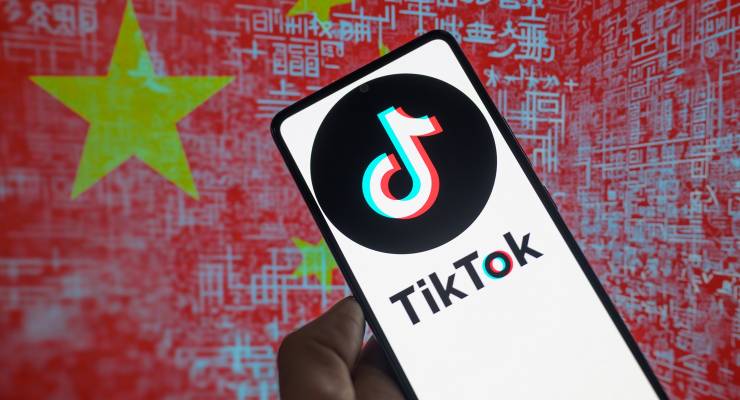
TikTok’s owner is once again navigating troubled waters in the United States, where the US House of Representatives has issued an ultimatum: divest or face shutdown within six months.
In Australia, Opposition Leader Peter Dutton and Senator James Paterson, the shadow home affairs spokesperson, want Canberra to follow suit.
TikTok, owned by the Beijing-based tech giant ByteDance, has been here before. It fought off a similar order by the Trump administration banning the video-creating and sharing app in the United States several years ago.
In a bid to mollify US security concerns about user data potentially being handed over to the Chinese Communist Party, TikTok pledged to migrate American user data to US-based Oracle Cloud. However, TikTok has reportedly struggled to live up to this promise.
TikTok’s growing resistance to US pressures
The platform’s survival in Western markets depends on its ability to navigate these geopolitical complexities. This situation will test TikTok’s adaptability and strategic approach, as well as the power of its user base.
In the past four years, TikTok has seen tremendous growth in both its user base and advertising revenue, though this has started to slow somewhat in the US. Last year, ByteDance was valued at US$220 billion (A$337 billion), which was down from US$500 billion (A$766 billion) in 2021, but still ranked as the world’s most valuable non-public startup.
This valuation not only highlights its worldwide appeal, but also uniquely equips it to deal with US regulatory hurdles.
Indeed, TikTok’s response to the latest attempted US ban has demonstrated the power of its resistance. On March 7, the platform engaged its users directly with a pop-up message urging them to contact Congress to complain. In doing so, it shifted the narrative from a direct confrontation between itself and Washington to a broader conflict between the US government and American citizens over freedom of expression.
The bill that would force ByteDance to sell the app or face a nationwide ban must still pass the Senate, so public pressure may come to bear. President Joe Biden has said he would sign the bill if it’s passed.
Although the bill has widespread support on both sides of the political spectrum, senators from both parties will need to consider the potential backlash from young people in a pivotal election year. Already, former president Donald Trump — the Republican nominee in the 2024 presidential contest — has backflipped on a potential TikTok ban, which underscores ByteDance’s growing political leverage.
Should the bill become law, civil liberty groups could also challenge it in US Federal Court as an infringement on TikTok users’ First Amendment rights to free speech. Some groups are already mobilising for action.
Federal judges have struck down attempted bans in the US in the past, but on different grounds. (One of these cases was brought by TikTok users, but was reportedly orchestrated by TikTok and its Chinese parent company.)
A new challenge on free speech grounds, which have yet to be tested in court, could lead to an eventual appeal to the US Supreme Court.
Other ways China could retaliate
Although US national security officials were briefing US senators on the risks posed by TikTok this week, this isn’t the sole reason the social media app has run into problems in Washington.
TikTok has also been targeted because of the burgeoning tech rivalry between the US and China, where many fear the spectre of a far-reaching tech decoupling between the countries or even an outright tech cold war.
Facing potential pressure to sell at a reduced value, ByteDance might decide to exit the US market altogether, considering the challenges faced by other Chinese tech companies in Western countries, like Huawei.
Such a decision could prompt retaliatory trade restrictions or other actions by the Chinese government due to nationalistic pressures. This could boost ByteDance’s stature in China — similar to what happened to Huawei after it was banned in the US.
China already blocks many US media outlets, social media platforms and other websites, such as Facebook, Twitter and Google. But it could retaliate with sanctions, as it has in the past against US data firms, officials and researchers (with limited impact).
The Chinese government has also said any sale of TikTok would have to comply with its law on tech exports, which requires licenses for the export of certain technologies. It’s not entirely clear how the law would apply to TikTok, but some experts believe it could encompass the algorithm that powers the app. This means, theoretically, China could prevent ByteDance from selling this technology to a foreign company.
TikTok’s predicament in the US also could set a precedent for other Chinese tech companies, like the e-commerce platforms Temu and Shein. Both companies are also under increasing congressional scrutiny, which likely makes them apprehensive about potential mandates for divestment or other regulatory hurdles they could face in the future.
Could Australia be next?
In Australia, TikTok is already banned on government-issued devices. Now, there is renewed momentum for a nationwide ban as well.
As a close ally of the US and a major trading partner of China, Australia is in a particularly vulnerable position. It could be forced to choose between a US strategy of decoupling its tech industry from China’s, or prioritising its improving relationship with Beijing.
As the debate in the US drags on, the point of difference between the two major parties in Australia will likely become more defined. Prime Minister Anthony Albanese said his government has no plans — at this stage — to follow the US lead on a TikTok ban, but this could change as the next federal election gets closer.
Politicians on both sides will need to take into account the impact of a potential ban among TikTok supporters, as well as the Chinese-Australian community. Many Chinese-Australians would see a ban as yet another slap in the face to their country of origin and further evidence of anti-China foreign policy.
This piece was first published in The Conversation.
Should the government ban TikTok? Let us know your thoughts by writing to letters@crikey.com.au. Please include your full name to be considered for publication. We reserve the right to edit for length and clarity.









The singling out of TikTok is ridiculous. There are quite a few reasons they do it, one of them poking the bear in the eye (china), but there’s documented evidence as well particularly from the Jewish lobby that they consider TikTok the greatest threat against their propaganda – coupled with states sharing this concern but more generally with regards to their own western propaganda to keep the population in line.
Regulate social media better, but apply it to all platforms.
Bonus benefit to force selling it off, making their oligarch donors even richer.
a lot of folks on tumblr (yes, it still exists) reckons the push to shutdown TikTok is due to it hosting a lot of pro-Palestinian posts …
Not sure that’s right at the top of the list of reasons?
It’s yellow peril, innit? The kids are all on TikTok.
Which is why there’s a bunch of anti-colonial sentiment; that’s just demographics…
Although come to think of it, maybe the powers that be of the west want all the platforms to suffer Twitter’s fate?
In that case they should sell them to Elon!
The reasons are hypocritical. Did we ban Facebook after it’s major privacy breach/es? We don’t seem to mind if multinationals hold and have access to our private information
If we’re worried about privacy then most of the apps we use should probably be banned. But we’re ok with corporations holding our information, just not countries like China.
Agreed. A digital platform-neutral approach would be better to legislate and…maybe…more diplomatically appropriate?
The Europeans have had their General Data Protection Regulation (and accompanying “right to be forgotten”) since 2016 – during the tenure of self-alleged technocrat PM Turnbull!!! – but we’ve had barely any movement towards similar protection from our federal government, even when the last mob was supposedly playing hardball with Meta on behalf of a murderer’s row of media conglomerates.
Weirdly thanks to the USA’s GOP-led Meta oversight the Australian public is less protected from their own government officials seeking data from Meta than the average USA citizen subject to 18 USC s2701.
Meanwhile digital platforms are allowed to vary their terms and conditions at will with barely any ACCC pushback for deceptive conduct; Meta is facilitating local marketplaces that effect an end run around the Australian Consumer Law; our banks can de-bank vulnerable workers operating in legal industries; and our Information Safety Commission runs around with a series of motherhood statements about protecting children from accessing/sharing/producing harmful content without any real move towards platform neutral legislation or at the very least a broadening of defined terms within the CCA1995 to better facilitate prosecution for basic crimes that apparently require specialist legislation to enforce!
Maybe it’s the ALP version of the “wait ’till the dumbest person in Cabinet understands that development will help not hinder their current/future paymasters” problem that the Coalition faces with any post-1964 technology and climate change issues – only it’s the “wait till even the most paranoid/under-the-influence-of-1975 party powerbroker agrees to do it or has explicit permission from the USA to proceed”.
Maybe, to simplify things for the policy battlers in 2600, someone at Crikey could mock up a list of digital rights that citizens currently enjoy (say, in the other Five Eyes countries) that Australians have yet to develop?
FCK YEAH to all of that
With big TikTok Investor, David Yass paying Trump’s legal bills, TikTok isn’t going to be banned in the US.
I for one am grateful for TikTok. Without it I’d be much less informed of the horrors (genocide and war crimes) being perpetrated by in Gaza.